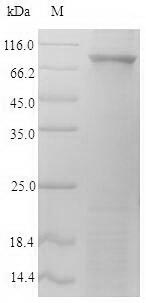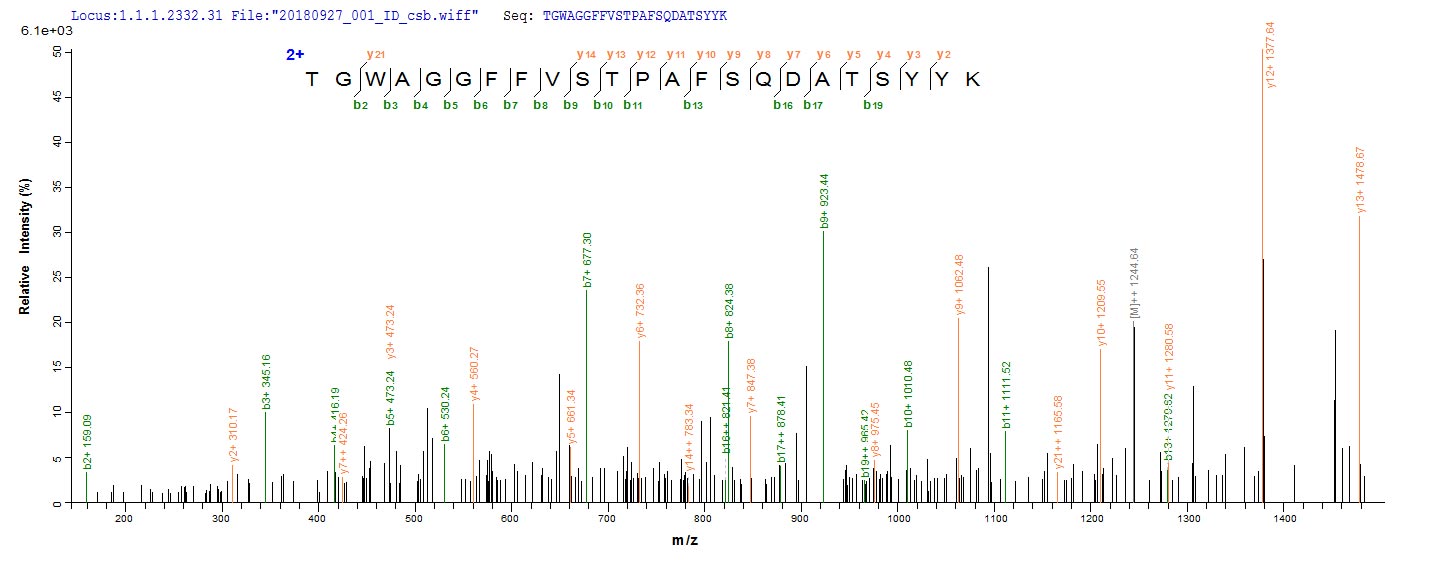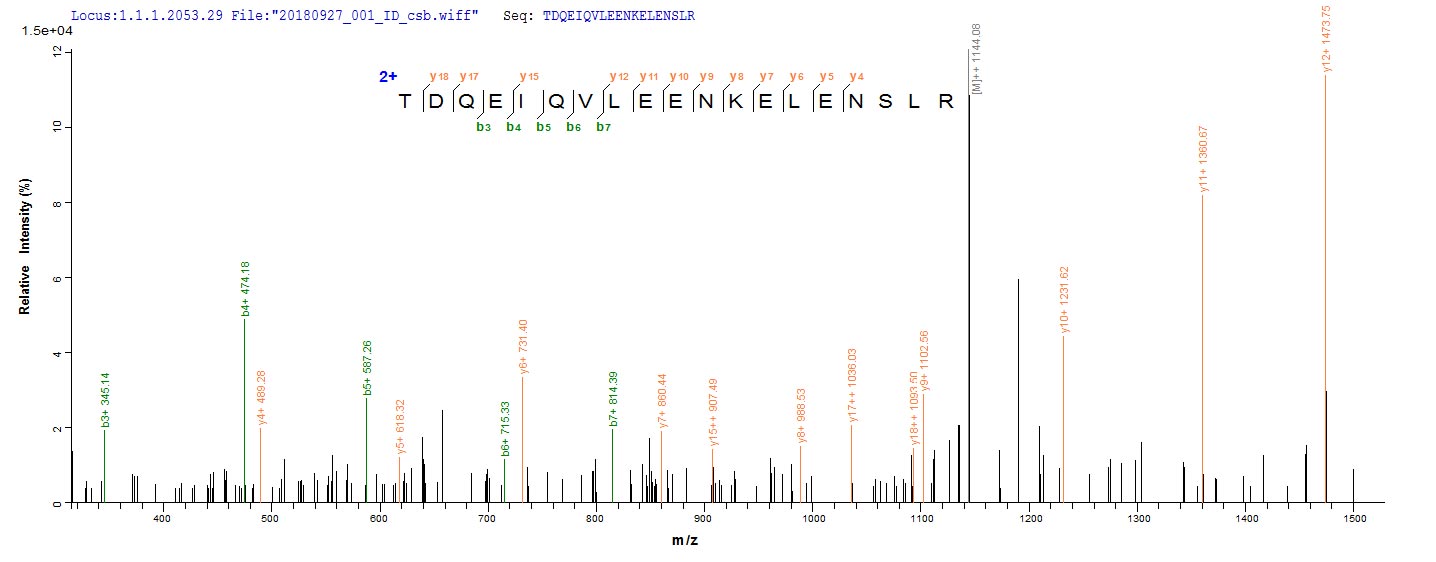The recombinant mouse Prolyl endopeptidase FAP is a highly pure protein, with more than 90% purity as determined by SDS-PAGE. Expressed from in vitro E. coli expression system, it covers the extracellular domain of mouse FAP (26-761aa) and includes an N-terminal 6xHis-SUMO-tag for efficient purification and detection. Available in liquid or lyophilized powder form, this recombinant protein is suitable for FAP-related research applications.
Mouse FAP is a type II transmembrane glycoprotein primarily expressed in fibroblasts during wound healing and in various fibrotic diseases, including pulmonary fibrosis and liver cirrhosis [1]. Its expression is also observed in cancer-associated fibroblasts (CAFs), where it contributes to the remodeling of the tumor stroma, facilitating tumor growth and metastasis [2]. FAP not only promotes ECM turnover but also influences the immune landscape within tumors, often leading to immunosuppression and resistance to therapies [3][4].
In addition to its role in cancer, FAP is implicated in various inflammatory conditions. Studies have demonstrated that FAP expression is associated with chronic inflammation and tissue remodeling [5][6].
References:
[1] L. Wang, A. Lo, J. Scholler, J. Sun, R. Majumdar, V. Kapooret al., Targeting fibroblast activation protein in tumor stroma with chimeric antigen receptor t cells can inhibit tumor growth and augment host immunity without severe toxicity, Cancer Immunology Research, vol. 2, no. 2, p. 154-166, 2014. https://doi.org/10.1158/2326-6066.cir-13-0027
[2] Y. Huang, A. Simms, A. Mazur, X. Wang, N. León, B. Joneset al., Fibroblast activation protein-α promotes tumor growth and invasion of breast cancer cells through non-enzymatic functions, Clinical & Experimental Metastasis, vol. 28, no. 6, p. 567-579, 2011. https://doi.org/10.1007/s10585-011-9392-x
[3] Z. Ye, Dendritic cells infected with recombinant adenoviral vector encoding mouse fibroblast activation protein‐α and human livin α exert an antitumor effect against lewis lung carcinoma in mice, Immunity Inflammation and Disease, vol. 11, no. 9, 2023. https://doi.org/10.1002/iid3.1011
[4] Y. Liu, Y. Sun, P. Wang, S. Li, Y. Dong, M. Zhouet al., Fap-targeted car-t suppresses mdscs recruitment to improve the antitumor efficacy of claudin18.2-targeted car-t against pancreatic cancer, Journal of Translational Medicine, vol. 21, no. 1, 2023. https://doi.org/10.1186/s12967-023-04080-z
[5] S. Wäldele, C. Koers-Wunrau, D. Beckmann, A. Korb-Pap, C. Wehmeyer, T. Papet al., Deficiency of fibroblast activation protein alpha ameliorates cartilage destruction in inflammatory destructive arthritis, Arthritis Research & Therapy, vol. 17, no. 1, p. 12, 2015. https://doi.org/10.1186/s13075-015-0524-6
[6] S. Stein, J. Weber, S. Nusser-Stein, J. Pahla, H. Zhang, S. Mohammedet al., Deletion of fibroblast activation protein provides atheroprotection, Cardiovascular Research, vol. 117, no. 4, p. 1060-1069, 2020. https://doi.org/10.1093/cvr/cvaa142








